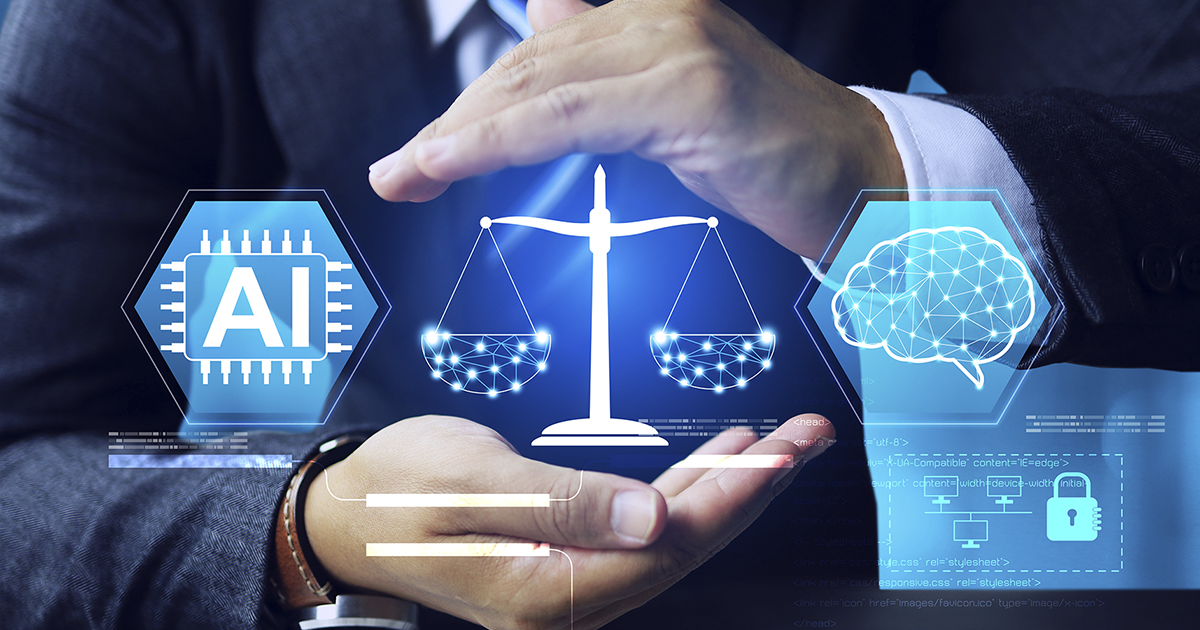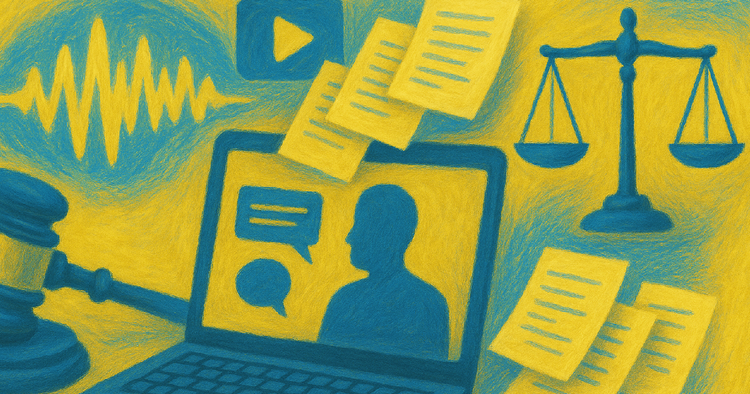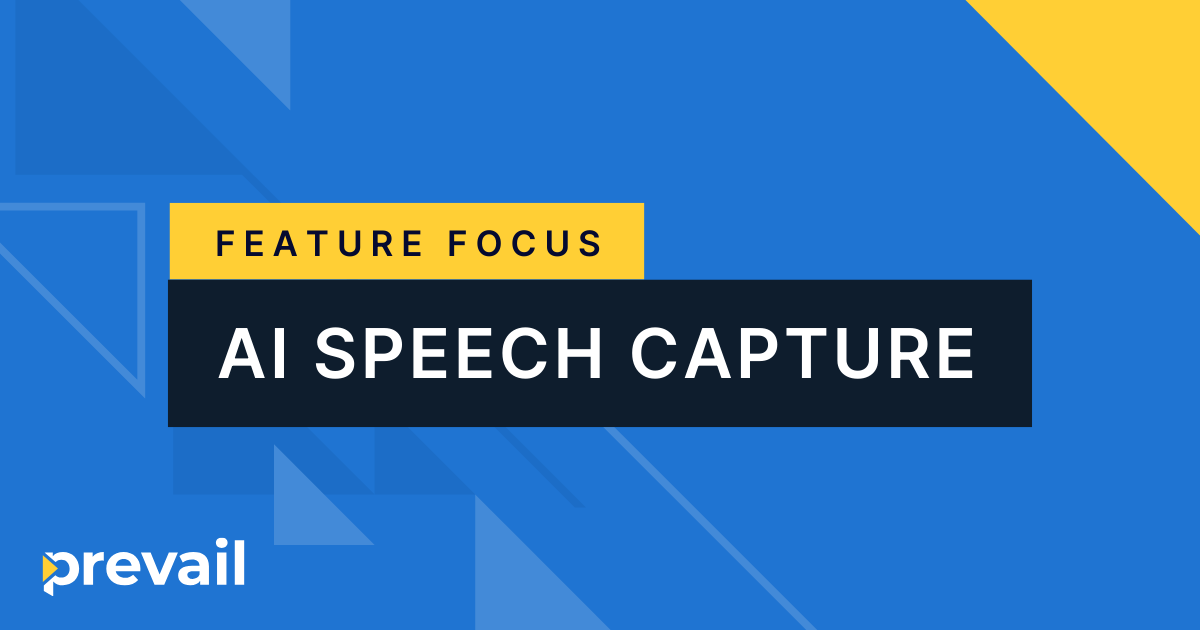The Importance of Human Oversight for Legal AI Tech

We’ve undeniably entered the age of artificial intelligence (AI). From healthcare to finance, AI has become a driving force behind innovation, and the legal field is no exception. Every day, new AI-powered tools emerge, promising to streamline tasks, improve accuracy, and unlock new efficiencies for legal professionals. With so many options on the market, the question is no longer whether to use AI but how to choose the right tools. After all, not all AI is created equal.
Our recent blog series covering RAG AI for legal tools highlighted that even the most advanced AI systems can face challenges in consistently delivering accurate and reliable results. This raises a critical question for legal professionals: How can they make informed decisions about which AI tools are worth integrating into their work? The answer lies less in the technology itself and more in embracing proper human oversight. By understanding how human insight and expertise complement AI, lawyers, judges, and clients alike can confidently harness the true potential of these cutting-edge tools.
AI Use Cases in Legal Work
As AI continues to evolve, its applications in the legal field are transforming traditional processes, offering new efficiencies and capabilities. Below are some specific areas where AI is currently making a significant impact:
- Legal Research
AI-powered tools can rapidly sift through mountains of case law, statutes, and regulations, providing legal professionals with the most relevant results in seconds. This allows legal professionals to spend less time searching and more time analyzing the information they need.
- Contract Review & Analysis
Contract analysis is time-consuming, but AI can quickly review contracts, identifying clauses, risks, and inconsistencies. AI assists in flagging potential issues that may otherwise be missed, enabling lawyers to focus on high-level strategy and negotiation.
- Litigation Prediction
Predictive analytics enable legal teams to forecast potential case outcomes by analyzing past cases with similar data points. This gives lawyers insights into the likelihood of success, helping them decide whether to proceed or settle.
- E-Discovery
In litigation, the discovery process can involve vast amounts of electronic information. AI streamlines this process by identifying relevant documents in a fraction of the time it would take a human, improving efficiency and accuracy in the discovery phase.
- Compliance Monitoring
Regulatory changes are constant, and keeping up can be overwhelming. AI tools help legal professionals stay compliant by continuously monitoring laws and regulations and automatically flagging updates that might affect their firm or clients.
- Testimony Analysis
AI-enhanced platforms, like Prevail, can analyze testimony to uncover patterns, inconsistencies, or crucial insights. This enhances the quality of legal preparation and can lead to more robust courtroom strategies.
Each of these use cases demonstrates how AI has the potential to revolutionize the legal industry. Yet, even the most advanced tools benefit from one critical factor: human oversight. The human element remains essential in ensuring that AI improves efficiency and maintains ethical and sound legal practices.
The Human Element
While AI impressively enhances productivity, human oversight keeps the technology grounded in reality. AI is brilliant at processing massive amounts of data, but it’s still no match for human judgment when it comes to understanding nuances, ethical dilemmas, and the context behind decisions. Legal work, in particular, isn’t just about processing facts; it’s about interpreting them. This is where human involvement becomes indispensable. AI can analyze precedents or predict outcomes but can’t decide when a moral consideration should override the data.
Take legal research as an example: AI can retrieve relevant cases in seconds, but it’s up to human experts to validate those findings, ensuring the research is both contextually accurate and strategically sound. In contract review, AI can spot inconsistencies, but a lawyer’s experience and expertise are needed to interpret risks that an algorithm might overlook. AI might flag a clause, but only humans can assess whether it’s a true red flag or a standard legal formality.
Similarly, litigation prediction shines when it crunches numbers and analyzes previous case outcomes. Still, human oversight injects the strategic thinking needed to decide the best course of action based on more than just statistics. AI can help forecast success, but it won’t know when to settle or press on based on the client’s needs or external pressures.
E-discovery is one of the most time-consuming processes in modern litigation. While AI can scour vast amounts of digital information, only humans can evaluate the legal significance of what AI flags. In compliance monitoring, AI can alert a firm to regulatory changes, but it’s the legal professionals who ensure that these updates are implemented in a way that aligns with complex laws and varying interpretations.
Then, there’s testimony analysis, a key area where AI-powered platforms like Prevail excel. AI can detect patterns or inconsistencies, but human experts are required to make sense of the subtleties. For instance, was a witness being evasive or just confused? AI can’t distinguish between hesitations caused by nerves and those indicating dishonesty. Human judgment, shaped by experience, fills in the gaps where AI falls short.
So, while AI offers incredible advances in efficiency and capability, it doesn’t replace the human element—it enhances it. The human touch ensures that AI’s speed and power don’t come at the cost of context or reason. And in legal work, where the stakes are often high, that balance is essential.
Human Expertise Meets AI: A Powerful Collaboration
AI is undeniably reshaping legal practice, but its greatest strength lies in collaboration with human expertise. AI tools streamline complex tasks and uncover insights previously buried in hours of manual work. But, as advanced as these tools are, they’re not infallible. The human element—judgment, ethics, and context—ensures AI’s output is fast and reliable.
Ultimately, AI and human expertise aren’t in competition; they complement each other. Together, they form a powerful duo that elevates the quality and integrity of legal work, delivering both precision and clarity.
If your organization needs a secure, AI-enhanced platform supported by expert human oversight, look no further than Prevail. Book a demo today to learn more about how Prevail can revolutionize your legal proceedings.




